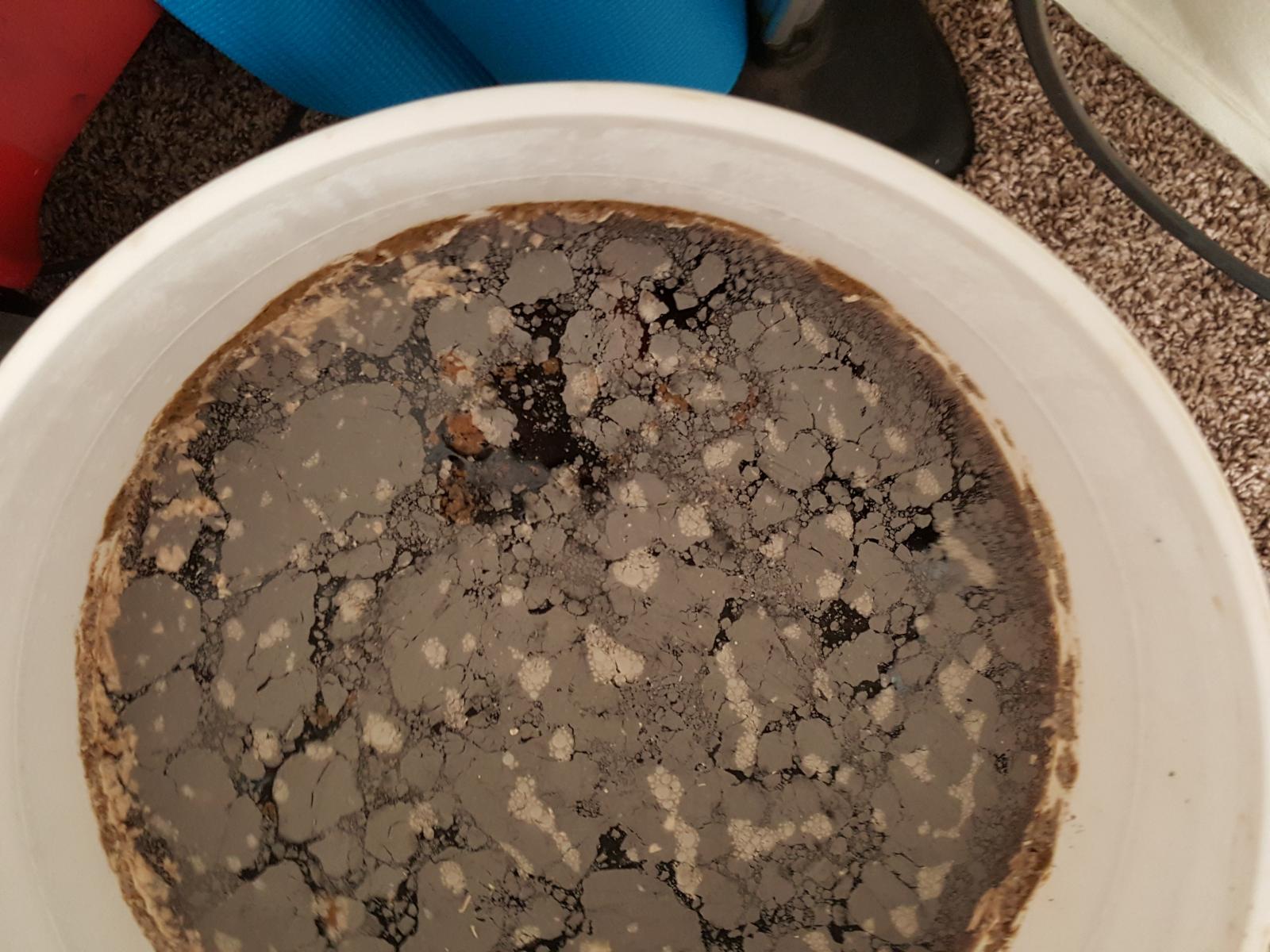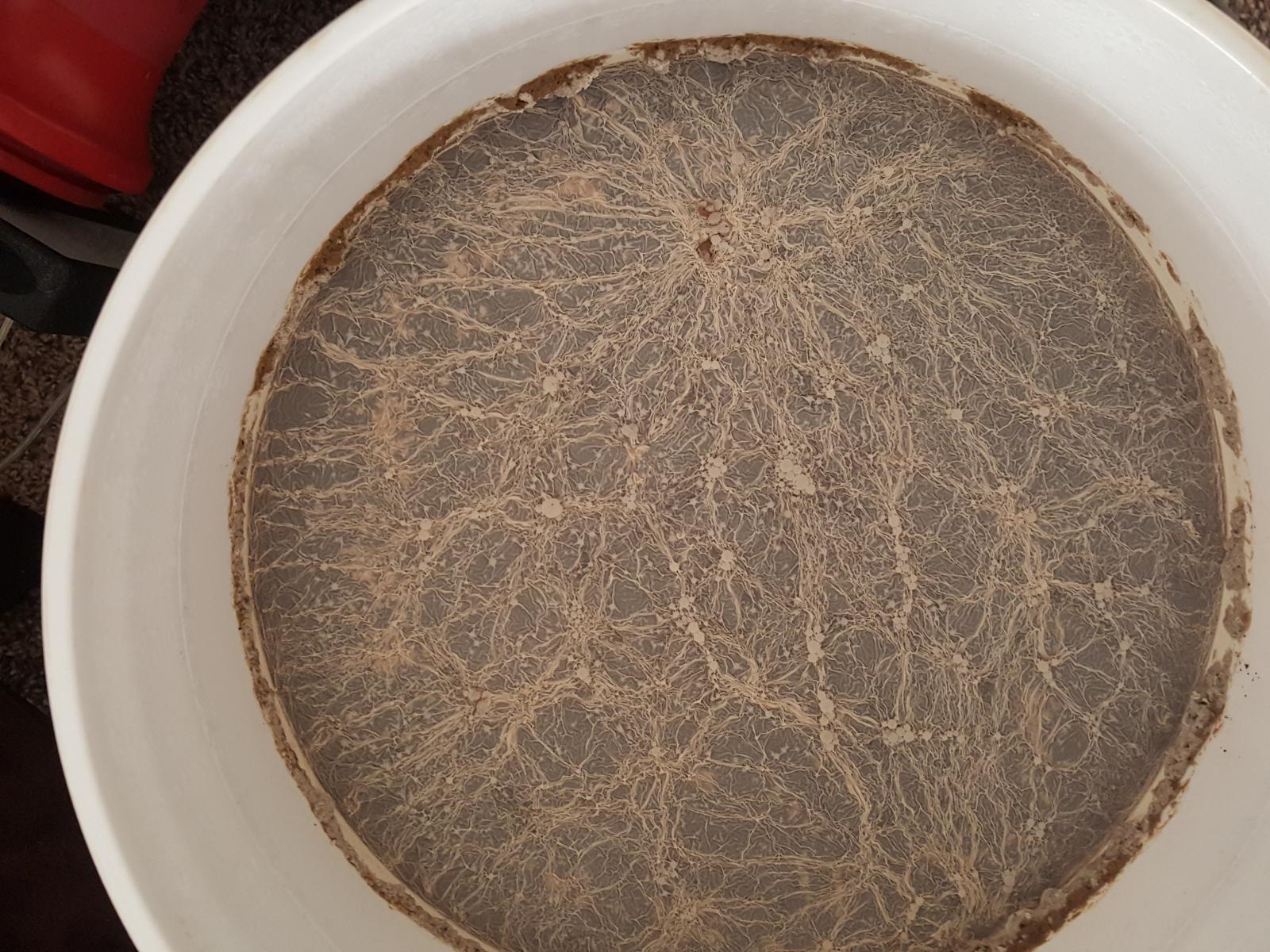mythicbearcat
New Member
- Joined
- Nov 5, 2016
- Messages
- 2
- Reaction score
- 0
Hi all,
I am new at homebrewing (2nd extract kit) and seem to have an infection on my hands. On the 21st I opened my bucket and added some whiskey-soaked vanilla beans to my stout. Everything looked normal at that point. On the 2nd I went to take a hydrometer reading and there was a film growing along with some bubbles and leftover krausen (1st pic). Today's reading remained the same (1.010) and but now the pellicle looks much more developed (2nd pic). The beer tastes pretty good-a little like tart cherries with a very small amount of carbonation.
My BF likes the taste and wants me to bottle now. I however, want to wait it out. I started homebrew because I wanted to make sours, I just figured that I should learn the fundamentals first, you know like sanitation...:smack: Anyway, my idea is to divert 1-2 gal to some glass jugs for aging, while bottling the rest. That way I can keep the pipeline going (we live in a small apartment) while still having a chance to experiment. I have a few questions:
For the beer that I am bottling, what can I do to avoid bottle bombs? Do I still prime the bottles? Is there a way of decreasing the bacteria/yeast count?
As for the experimental batch, is there a way to improve on the taste other than to just leave it be for a year? Do I need to refeed it some juice?
Really, any advice would be greatly appreciated. I have been trying to read about accidental sours, but most of the advice seems to be along the lines of "dont do it."


I am new at homebrewing (2nd extract kit) and seem to have an infection on my hands. On the 21st I opened my bucket and added some whiskey-soaked vanilla beans to my stout. Everything looked normal at that point. On the 2nd I went to take a hydrometer reading and there was a film growing along with some bubbles and leftover krausen (1st pic). Today's reading remained the same (1.010) and but now the pellicle looks much more developed (2nd pic). The beer tastes pretty good-a little like tart cherries with a very small amount of carbonation.
My BF likes the taste and wants me to bottle now. I however, want to wait it out. I started homebrew because I wanted to make sours, I just figured that I should learn the fundamentals first, you know like sanitation...:smack: Anyway, my idea is to divert 1-2 gal to some glass jugs for aging, while bottling the rest. That way I can keep the pipeline going (we live in a small apartment) while still having a chance to experiment. I have a few questions:
For the beer that I am bottling, what can I do to avoid bottle bombs? Do I still prime the bottles? Is there a way of decreasing the bacteria/yeast count?
As for the experimental batch, is there a way to improve on the taste other than to just leave it be for a year? Do I need to refeed it some juice?
Really, any advice would be greatly appreciated. I have been trying to read about accidental sours, but most of the advice seems to be along the lines of "dont do it."


























![Craft A Brew - Safale BE-256 Yeast - Fermentis - Belgian Ale Dry Yeast - For Belgian & Strong Ales - Ingredients for Home Brewing - Beer Making Supplies - [3 Pack]](https://m.media-amazon.com/images/I/51bcKEwQmWL._SL500_.jpg)
































